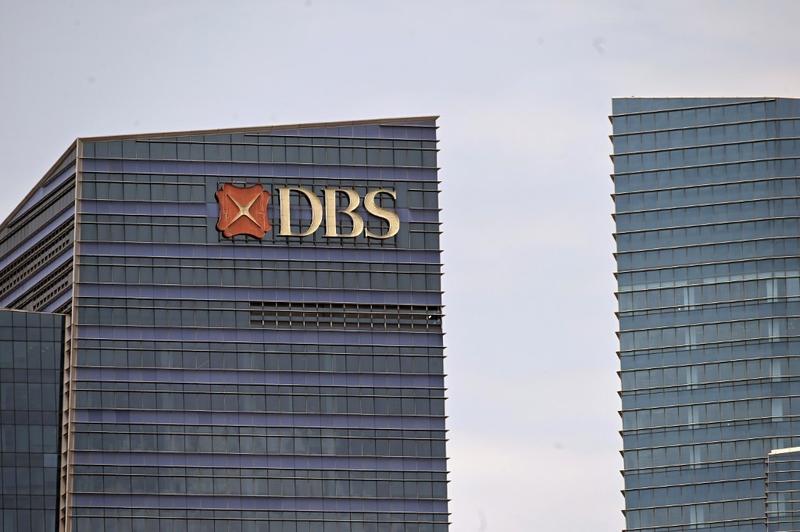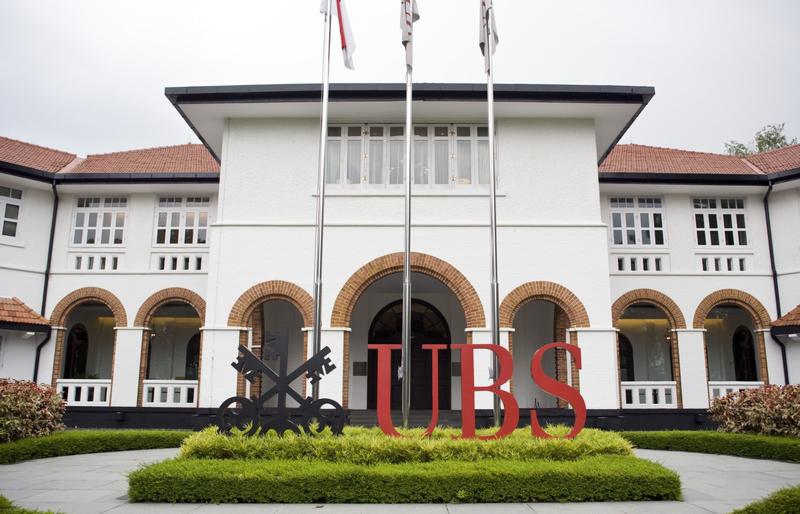 A Development Bank of Singapore (DBS) logo is displayed on a building in Singapore on Aug 29, 2019. (PHOTO / AFP)
A Development Bank of Singapore (DBS) logo is displayed on a building in Singapore on Aug 29, 2019. (PHOTO / AFP)
Shares in Singapore banks dropped after the country’s regulator asked them to cap their 2020 dividends at 60 percent of last year’s levels.
DBS Group Holdings Ltd led Thursday’s declines, with its shares dropping as much as 3.4 percent. Oversea-Chinese Banking Corp and United Overseas Bank Ltd also fell.
Citigroup says the move will be viewed negatively by investors as dividend yield is an important factor when considering buying bank stocks
The Monetary Authority of Singapore requested the curb on payouts because it wants to “ensure the banks’ capital buffers remain ample in the face of significant uncertainties ahead, so they can sustain lending to the economy,” MAS Managing Director Ravi Menon said in a statement late Wednesday.
Other central banks including the Federal Reserve, the Bank of England and the European Central Bank have already announced curbs on their banks’ dividend payments. A move by the MAS had been expected since Menon told a media briefing earlier this month that the MAS was in talks with the banks on their capital management.
The MAS said its stress tests have showed that the local banks remain resilient, and it made the request as a pre-emptive measure. It asked the Singapore banks to offer shareholders the option of receiving 2020 dividends in scrip in lieu of cash.
DBS is due to report its second-quarter results on Aug 6, together with UOB. OCBC will report the following day.
ALSO READ: Singapore woos banks in battle of Asia's biggest forex hubs
UBS Group AG and Citigroup Inc are at odds on how Singapore’s move to cap dividend payouts at the nation’s banks will play out for equity investors.
Citigroup says the move will be viewed negatively by investors as dividend yield is an important factor when considering buying bank stocks. UBS sees the central bank’s move as prudent in the context of the coronavirus pandemic and no threat to the sustainability of payouts.
The lenders command the biggest weighting in the MSCI Asean Index and are set to announce their quarterly earnings next week.
 In this file photo, the UBS Wealth Management Campus is seen in Singapore. (PHOTO / BLOOMBERG)
In this file photo, the UBS Wealth Management Campus is seen in Singapore. (PHOTO / BLOOMBERG)
‘Buying Opportunity’
“The short term and prudent nature of this measure does not raise any question marks on the long-term sustainability of dividends,” UBS Group analyst Aakash Rawat wrote in a note. “Investors with a slightly longer term horizon are likely to see this weakness as a buying opportunity.”
The impact seems greatest for DBS, which investors see as a bigger proxy for generating dividend income than its peers, he wrote.
‘Viewed as Negative’
“This will be viewed as negative for the banks as the dividend yield is considered an important component of the investment thesis for owning these names, especially DBS,” Citigroup analysts Robert Kong and Weldon Sng wrote in a note.
The cut in dividends will add to the pain of a sharp sequential fall in net interest margins and may prompt banks to front-load provisions, they wrote.
READ MORE: Asia profits tank 73% as earnings season kicks into high gear
Prefer SGX to Banks
Jefferies Financial Group Inc. prefers shares of Singapore Exchange Ltd. to those of the nation’s banks citing the bourse’s “similar but fully underwritten cash yield,” according to a note.
The announcement will weigh on sentiment as yield gets capped at around 4 percent versus 6 percent previously, although investors should remember the strong capital positions of the banks, analyst Krishna Guha wrote.
The brokerage downgraded DBS to hold from buy, lowering its dividend estimates by 29 percent for the 2020 fiscal year.


